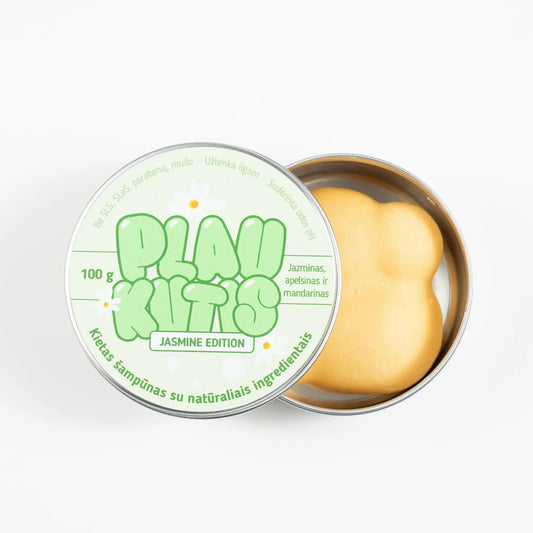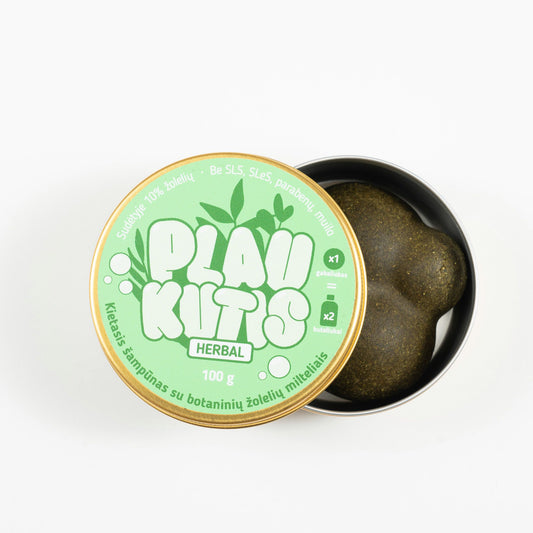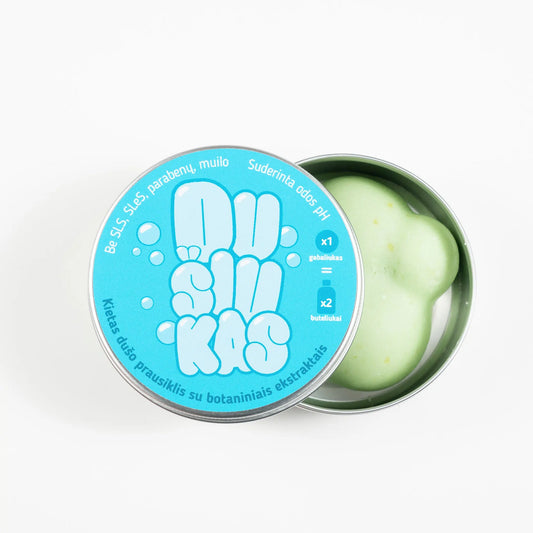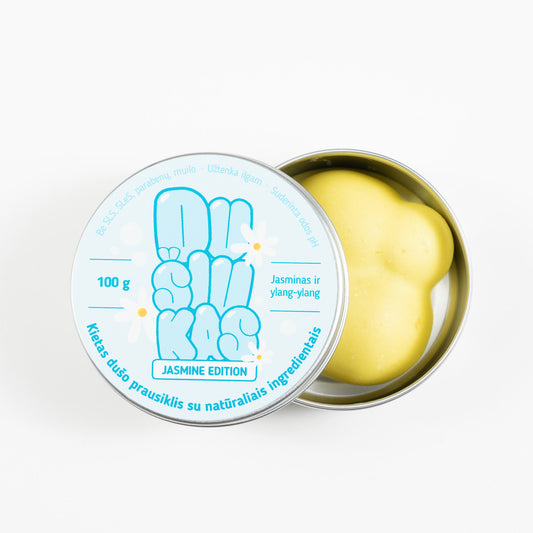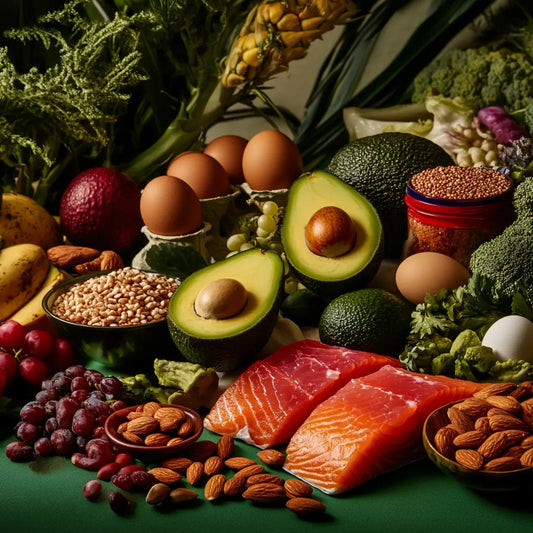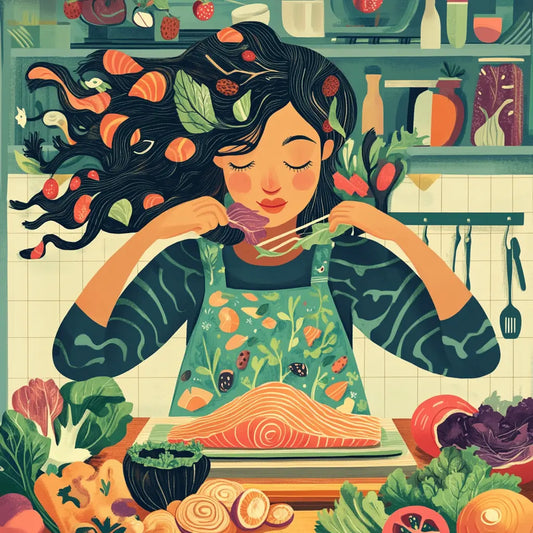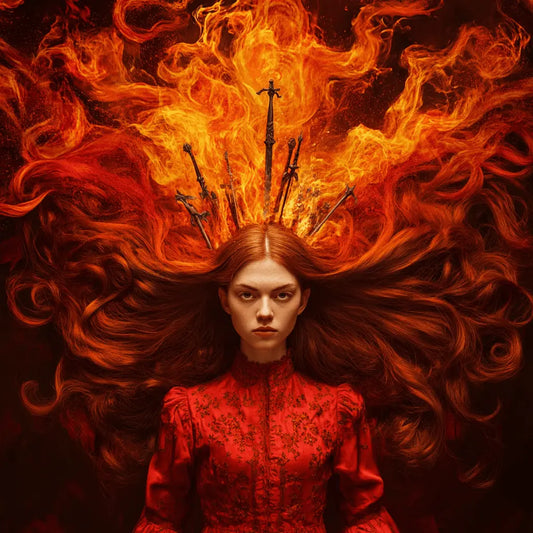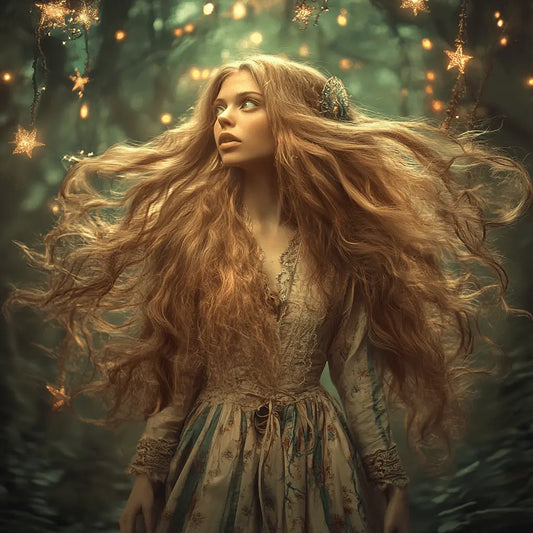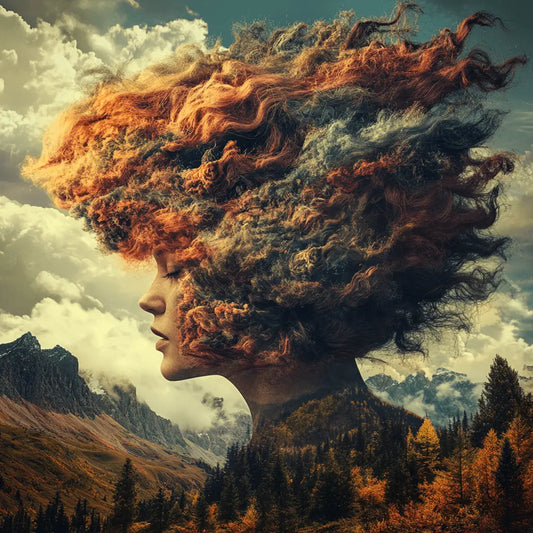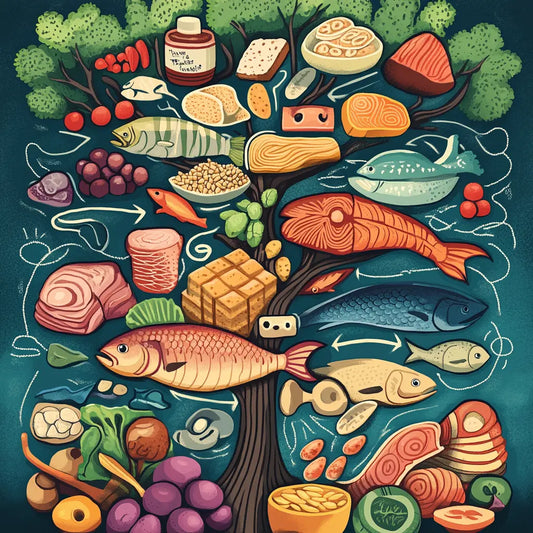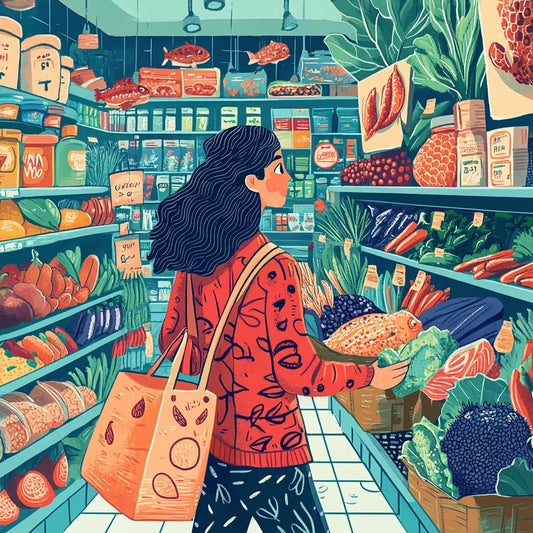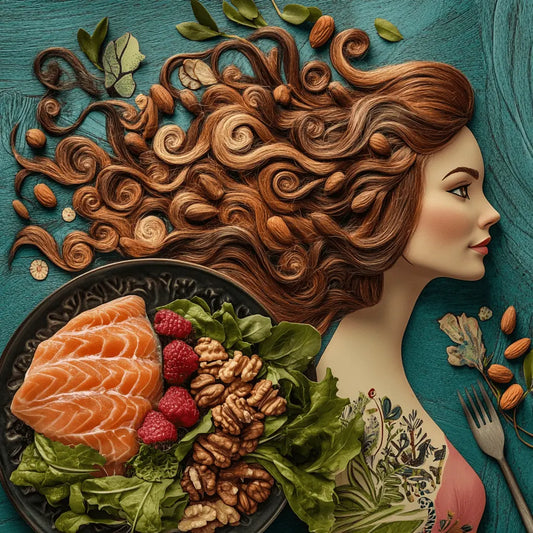Did you know that the health of your hair is largely determined by what you eat? While we often rely on shampoos and conditioners, the vitamins and minerals that your body gets are even more important. Vitamins like C and minerals like iron and zinc play a crucial role in the hair growth process. They can help transform your hair from thin and weak to strong and thick. In this article, we’ll discuss how these nutrients affect hair health, and provide interesting facts, cultural examples, and scientific insights to help you take care of your hair from the inside out.

Vitamin C: Collagen production and iron absorption
Vitamin C for hair
When we think of vitamin C, we usually think of its benefits for the immune system. But vitamin C is also essential for hair health. It has two main functions: it promotes the production of collagen, which strengthens hair, and it helps the body absorb iron, another important nutrient for hair growth. A lack of vitamin C can make hair weak, brittle, and more prone to breakage.
- Fun fact: Vitamin C is a powerful antioxidant that helps protect your scalp and hair from oxidative stress caused by environmental factors like pollution and UV rays. A study published in the International Journal of Trichology indicates that antioxidants like vitamin C can reduce the effects of oxidative stress on hair follicles.
How collagen strengthens hair
Collagen is one of the most abundant proteins in our bodies, making up about 30% of the total protein in the body , and it is important not only for skin and nails, but also for hair. Collagen supports the structure of the scalp and hair follicles, promoting healthy hair growth. As we age, collagen production decreases, making hair thinner and more susceptible to damage. Taking vitamin C helps maintain high collagen levels, making hair stronger and more resilient.
- Fun fact: After the age of 30, the body's collagen production decreases by about 1% each year , which naturally causes hair to become weaker. In China and Japan, collagen-rich diets have long been considered the secret to youthful hair. In these countries, collagen-rich foods like bone broth and fish skin have been consumed for centuries.
Collagen also strengthens the blood vessels that supply nutrients to hair follicles, ensuring that hair gets everything it needs to grow strong and healthy.
- Fun fact: The amino acids found in collagen, especially proline, play an important role in hair structure. Proline is one of the main components of keratin, the protein that makes up 95% of your hair .

Foods rich in vitamin C
Supplementing your diet with vitamin C is very easy. Here are some easily accessible and delicious sources:
- Oranges (one orange provides 70 mg of vitamin C – almost 80% of the daily value)
- Strawberries
- Kiwi (one kiwi provides 92 mg of vitamin C – more than 100% of the recommended daily intake)
- Peppers
- Papaya
- Broccoli
- Kale
In countries like Brazil, where fruits like papaya and citrus fruits are abundant, people naturally get more vitamin C, which contributes to healthy, shiny hair. These fruits and vegetables are easy to incorporate into your daily diet to strengthen your hair.
Iron and zinc: important for hair growth
The role of iron in hair growth
Iron is essential for hair growth because it helps red blood cells carry oxygen to the hair follicles. If the body lacks iron, the hair follicles do not receive enough oxygen, which can lead to thinning hair or even baldness. Iron deficiency, or anemia, is one of the most common nutritional deficiencies in the world, especially among women. Studies show that women of childbearing age are particularly susceptible to iron-deficiency hair loss.
- Surprising fact: Up to 30% of women of childbearing age experience some degree of iron deficiency, which often leads to increased hair loss. Iron needs increase dramatically during pregnancy, and insufficient iron intake can affect the condition of your hair.

Iron also helps the body produce hemoglobin, a protein found in red blood cells that carries oxygen. Hemoglobin helps stimulate hair growth by providing nutrients and oxygen to the hair roots. A 2013 study published in the Journal of Korean Medical Science found that women who suffered from hair loss often had lower iron levels.
- An interesting cultural example: In India, where iron deficiency is more common due to a vegetarian diet, women often use henna, a natural dye that can condition and strengthen hair. Some studies show that iron from plant foods like spinach is more easily absorbed when combined with vitamin C-rich foods like citrus fruits.
The role of zinc in hair follicle health
Zinc is often undeservedly overlooked, but it plays an important role in maintaining hair health. Zinc helps regulate the body’s production of sebum, an oil on the scalp that moisturizes hair follicles. A zinc deficiency can cause a dry, flaky scalp, which weakens hair and can increase hair loss. Zinc also helps repair damaged hair follicles, promoting stronger hair growth.
- Fun fact: Zinc deficiency can cause hair loss, and some studies show that people with alopecia areata (an autoimmune condition that causes hair to fall out in patches) are often deficient in zinc. A study in the International Journal of Dermatology found that zinc supplements helped improve hair regrowth in patients who were deficient in zinc.
In Middle Eastern countries like Iran and Egypt, where zinc-rich nuts and seeds are commonly consumed, people are less likely to suffer from scalp problems such as dandruff. Meanwhile, in places where the diet is deficient in zinc, scalp disorders and hair thinning are more common.

The best sources of iron and zinc
To maintain healthy hair, it is essential to get adequate amounts of iron and zinc from your diet. Here are some nutritious foods:
- Iron-rich foods:
- Red meat (3 ounces of beef provides 15% of your daily iron needs)
- Spinach (half a cup of cooked spinach provides 3.2 mg of iron)
- Lentils
- Pumpkin seeds (one ounce of pumpkin seeds has almost 3 mg of iron)
- Chickpeas
- Zinc-rich foods:
- Oysters (just 6 oysters provide over 500% of the daily value of zinc)
- Cashews
- Beef
- Dairy products such as yogurt and cheese
- Chickpeas (one cup provides 2.5 mg of zinc)
People in Mediterranean regions, where zinc-rich seafood like oysters is a staple, often have stronger, healthier hair. Even vegetarians can get zinc from foods like chickpeas and pumpkin seeds.
Conclusion: A combination of vitamin C, iron and zinc for hair health
Vitamin C, iron and zinc work together to support healthy hair growth. Vitamin C promotes collagen production and helps the body absorb iron, which is important for strong hair growth. Iron, meanwhile, ensures that hair follicles receive enough oxygen, while zinc regulates the production of sebum on the scalp and helps repair hair follicles.
By including vitamin C-rich fruits, iron sources like spinach and red meat, and zinc-rich foods like oysters and cashews in your diet, you can ensure that your hair gets all the nutrients it needs. This will help your hair grow strong, shiny, and healthy. Remember, healthy hair is not just about cosmetics, it’s also about proper nutrition!

Myths and facts about our hair vitamins
- Myth: Vitamin C supplements alone can promote hair growth.
Fact: While vitamin C helps produce collagen and absorb iron, it works most effectively when taken with other important nutrients, such as iron and zinc. - Myth: Iron deficiency is only common in older women.
Fact: Iron deficiency is common in women of childbearing age due to menstruation. Iron deficiency is often associated with hair thinning and loss. - Fun fact: Oysters are the richest food source of zinc. Just six oysters can provide more than five times the recommended daily allowance of zinc.
- Fun fact: The Nazca culture in ancient Peru used sweet potatoes (rich in vitamin C) as part of beauty rituals to promote healthy hair and skin.
- Myth: Hair loss is only related to genetics.
Fact: Many cases of hair loss, especially in women, are linked to a deficiency in nutrients such as iron and zinc.
Practical tips to improve hair health with vitamin C, iron and zinc
- Include nutritious foods in your diet: Consume foods rich in vitamin C (citrus fruits), iron (spinach and red meat), and zinc (oysters, chickpeas) every day.
- Combine iron with vitamin C: To help your body absorb iron better, combine iron-rich foods with sources of vitamin C. For example, eating spinach salad with orange slices will increase iron absorption.
- Consider taking supplements: If you have difficulty getting enough nutrients from food, consider taking supplements, especially vitamin C, iron, and zinc.
- Drink enough water: Water helps the body transport nutrients to the hair follicles, promoting hair growth.
- Monitor your nutrient levels: If you notice your hair starting to fall out, check your iron and zinc levels. Deficiencies in these minerals are a common cause of hair loss in women.

Frequently asked questions
- What foods are best for promoting hair growth?
Foods like spinach, red meat, oysters, and citrus fruits provide the body with vitamin C, iron, and zinc, which are essential for healthy hair. - How does vitamin C help hair health?
Vitamin C promotes collagen production, which strengthens hair, and helps the body absorb iron, which is important for delivering oxygen to hair follicles. - How much iron do women need for healthy hair?
Women between the ages of 18 and 50 need about 18 mg of iron per day to support healthy hair growth, especially if they are menstruating. - Can zinc help with dandruff?
Yes! Zinc helps regulate sebum production in the scalp and reduces inflammation, which can prevent dry, flaky skin. - Is it necessary to take supplements to maintain hair health?
While most nutrients can be obtained through a balanced diet, supplements can help if the body is deficient in vitamin C, iron, or zinc.
